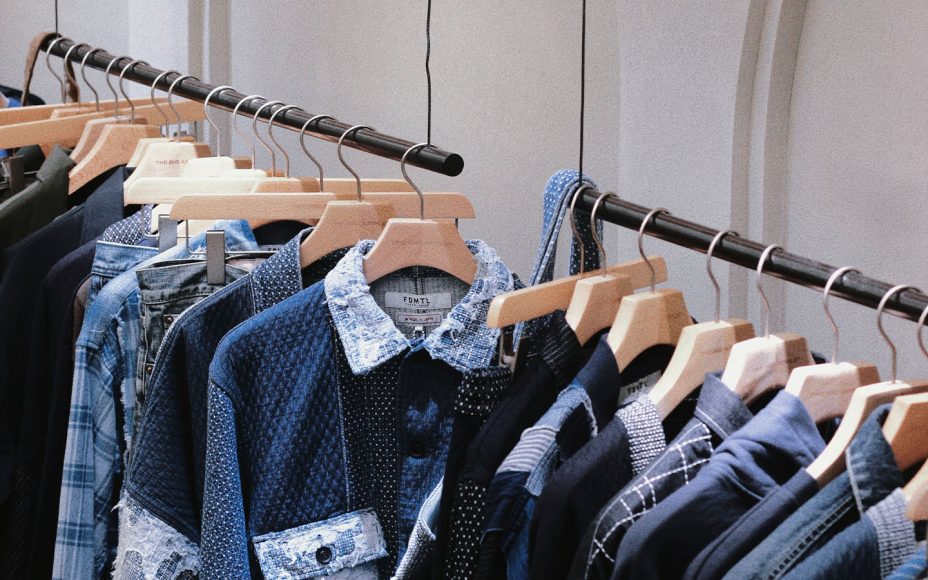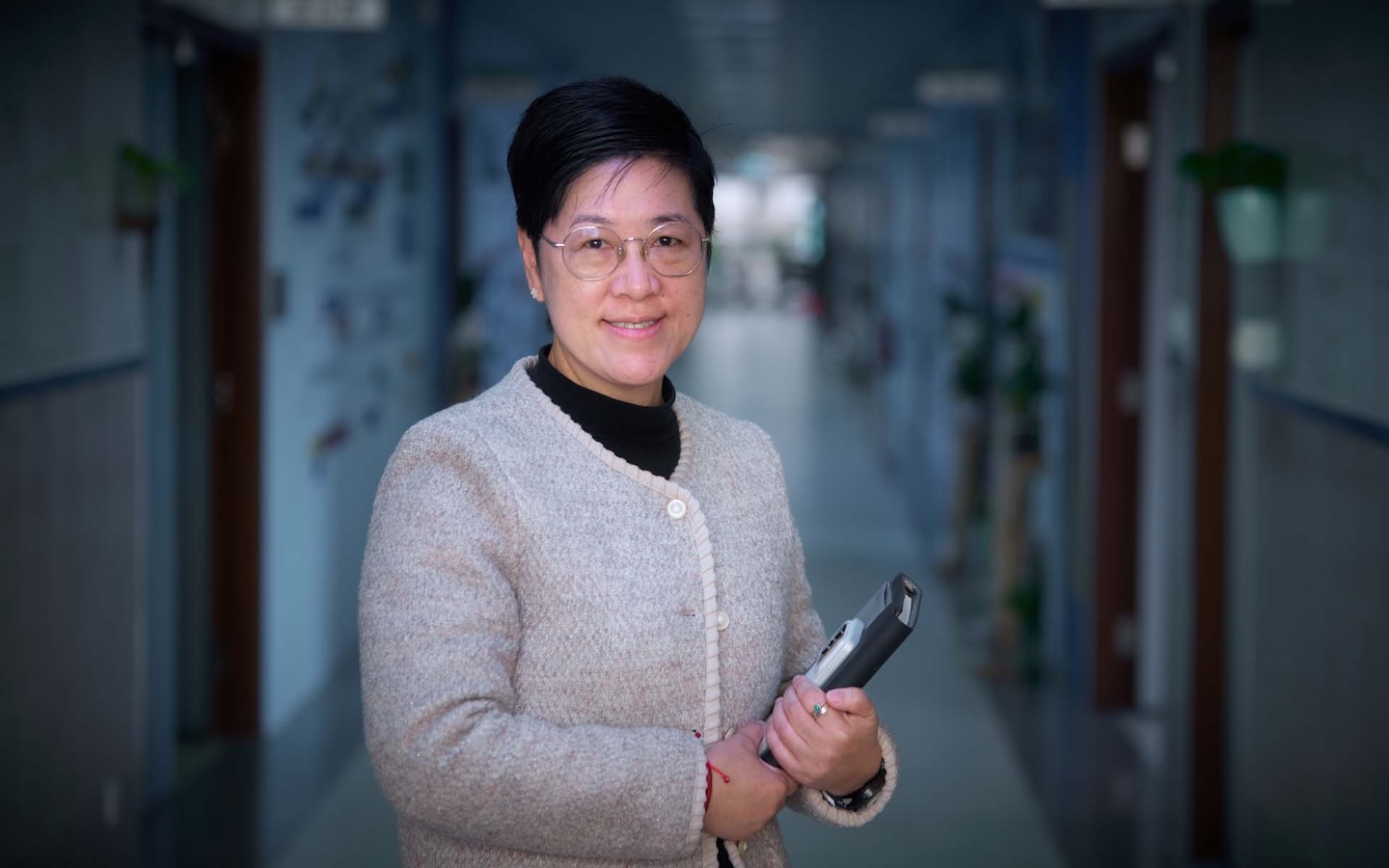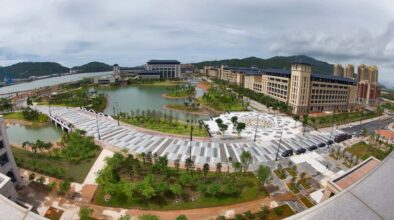There is no doubt that Generation Z dresses distinctly. But there’s also something familiar about these digital natives’ fashion sense, too. They have a habit of borrowing trends from bygone eras and other age groups. Take the Y2K aesthetic, harking back to the year 2000: low-rise jeans, trucker caps and crop tops? They’re back. In contrast to that turn-of-the-century skimpiness, Gen Zs have also embraced a look known as the ‘coastal grandmother’. Here you’ve got loose, neutral linens and sun-smart bucket hats.
Whatever’s going on above the ankle, sneakered feet are pretty much ubiquitous. And so are sustainability values. Gen Z is – at least in theory – willing to pay a premium for clothing produced in ways that benefit the environment and society. There’s also strong demand for low-key yet high-quality essentials that are made to last. Vintage garb is popular, but so is brand new gear designed to look vintage.
Fortunately for the style mavens of Macao, a homegrown fashion scene has emerged in recent years. Macao magazine sat down with the visionaries behind three local brands. Tailoring their wares for Gen Zs (defined as people born between the late 1990s and 2010s) – who find much of their outfit inspiration via social media – these local boutiques will also appeal to anyone who appreciates clean cuts and comfortable footwear.
Big-name brands at The Big Apple
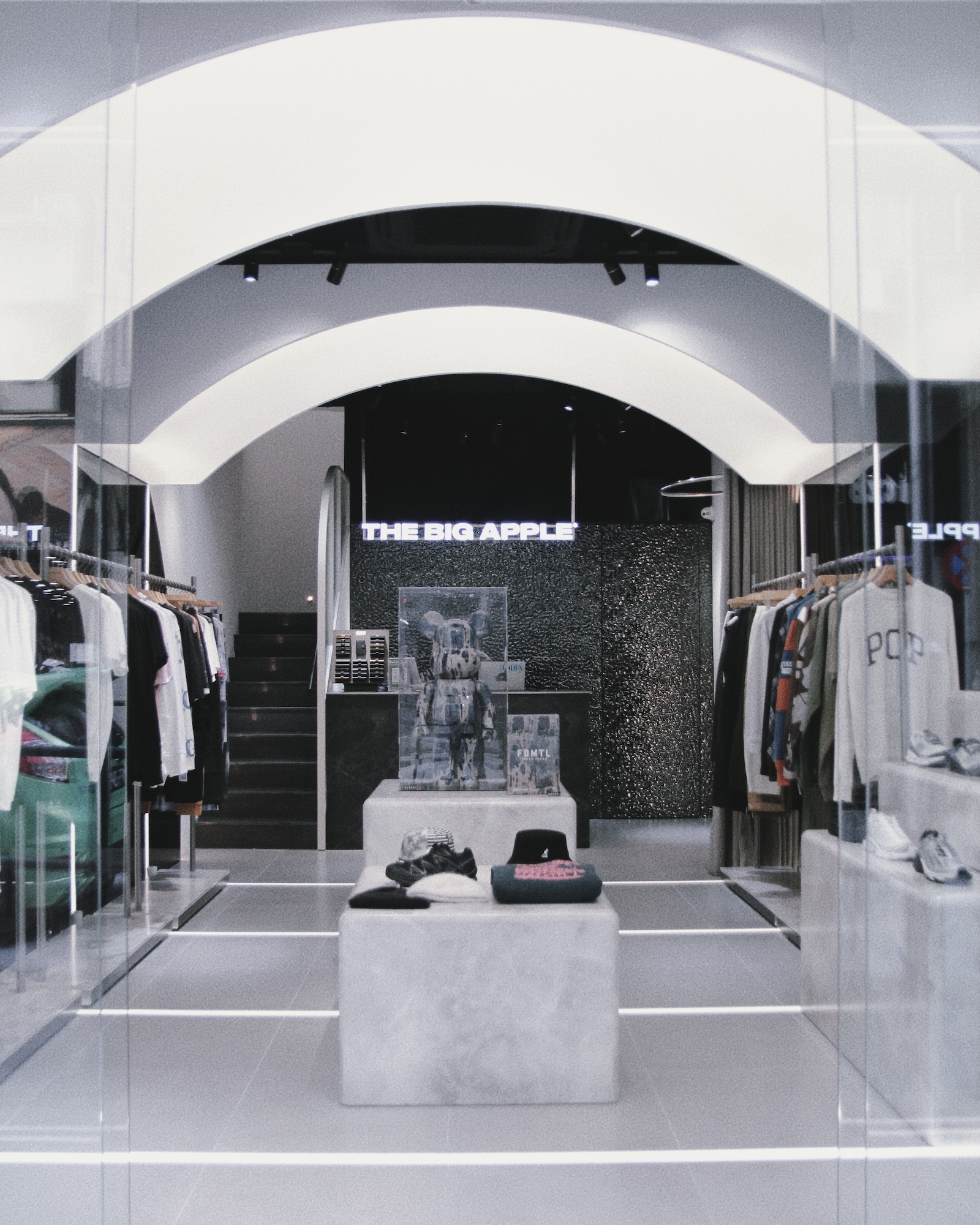
With five boutiques across Macao, The Big Apple has come a long way since a trio of friends opened a Facebook-based clothing business in 2014. “There was nowhere Macao people could find streetwear at that time – they had to either shop online or go to Hong Kong,” says 33-year-old Billy Kouk, who co-founded The Big Apple alongside Pinky Hong and Jeff Tang.
“All three of us are into pop and street culture, including fashion, movies, music like hip hop, rap and R&B, breakdance and skateboarding,” he shares. It was these niche interests that inspired the group to bring streetwear to Macao.
True fashion connoisseurs, the co-founders often travel to Tokyo to find the latest in Asian street trends, and to the French capital for Fashion Week. Their careful curation can be perused at the brand’s flagship store on Rua do Campo, in the heart of Macao Peninsula. Inside the three-storey boutique, there are vibrant trainers displayed on the walls, Japanese and US labels hanging on racks, and themed installations highlighting the latest in Gen Z aesthetics.
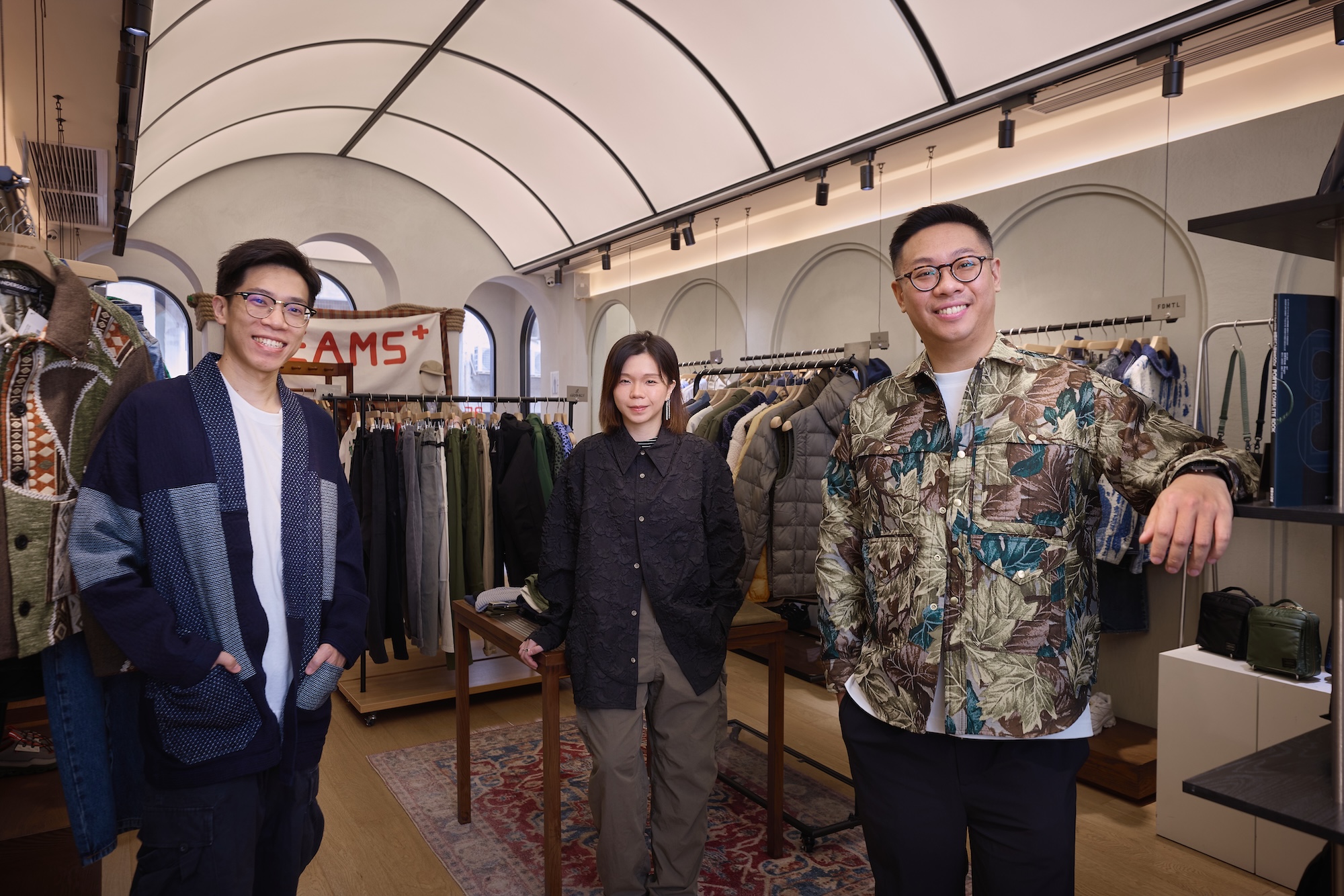
So-called blokecore is one of these, which Kuok explains is sporty fashion inspired by ’90s-era British football culture and escalated by the 2022 FIFA World Cup. An outdoorsy look is also popular at the moment, he says, apparently reflecting Gen Z’s desire to spend time in nature after weathering extended pandemic lockdowns indoors.
The Big Apple is the only retailer in Macao stocking several major brands favoured by Gen Zs around the world, including On running sneakers (from Switzerland) and the US’s Oakley apparel. It’s also the only place in the city where you can buy the Sportstyle collection of Salomon sneakers.
Less is more at Pure Zone
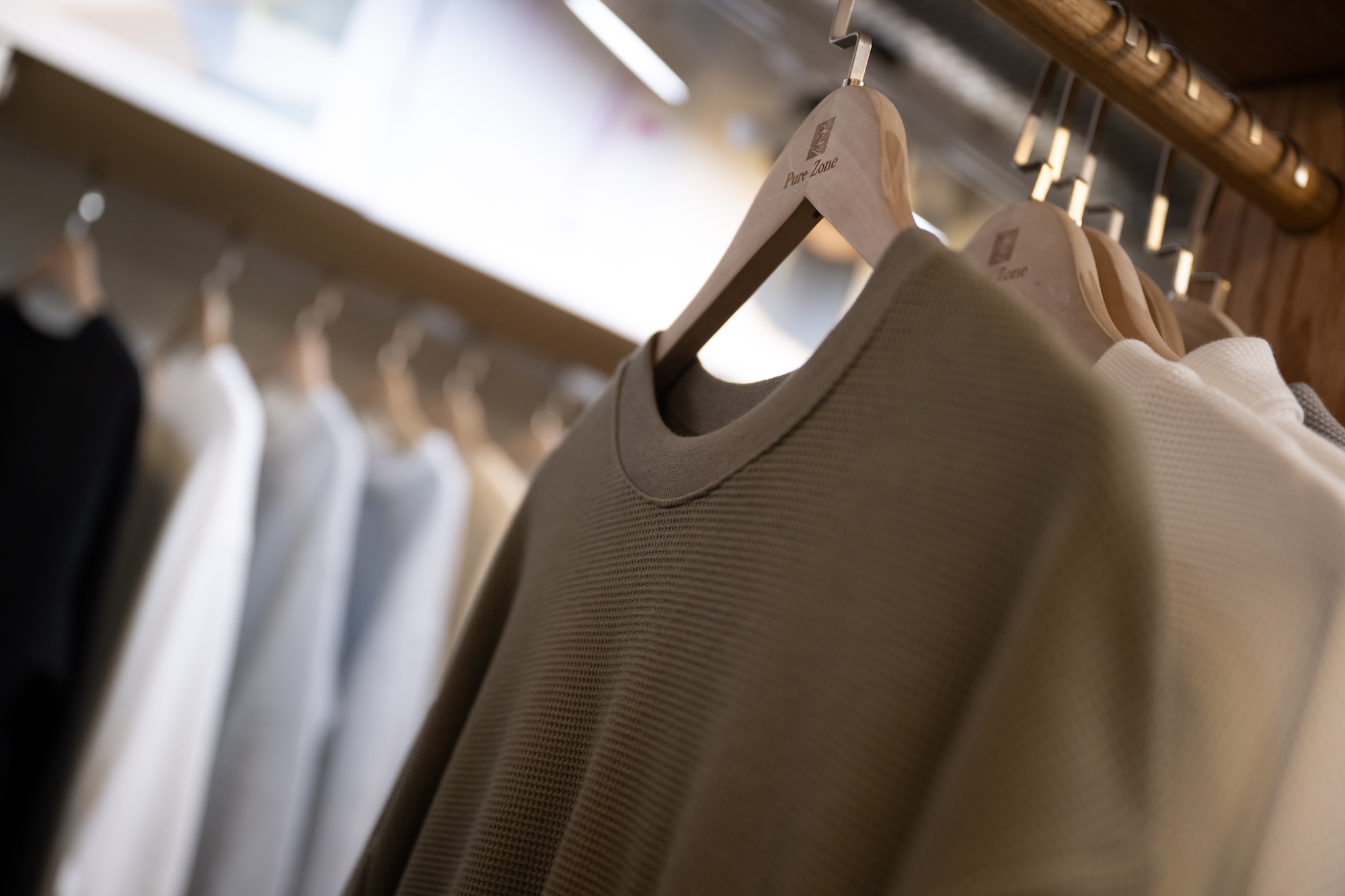
In contrast to The Big Apple, Pure Zone’s apparel revolves around minimalist, logo-free essentials. It’s where local Gen Zs get their monochromatic tees, hoodies, polos and button-downs – often cut to be oversized and/or gender-neutral. Clean lines and simplicity are championed by this Macao-grown brand.
Its co-founders Ryan Wong and Jack Tam – both Gen Zs themselves at 26 years old – met while enrolled at a local secondary school. Near the start of the Covid-19 pandemic, they discussed what was missing from Macao’s fashion scene: ‘Why isn’t there a local version of Uniqlo,’ they wondered. And with that, an idea was born. “We wanted to show people that we can make something of that quality, or even better, locally,” says Wong.
So, he and Tam launched a website selling clothes from different factories and designers. A few months later, they rejigged the business to start their own product line, Pure Zone.
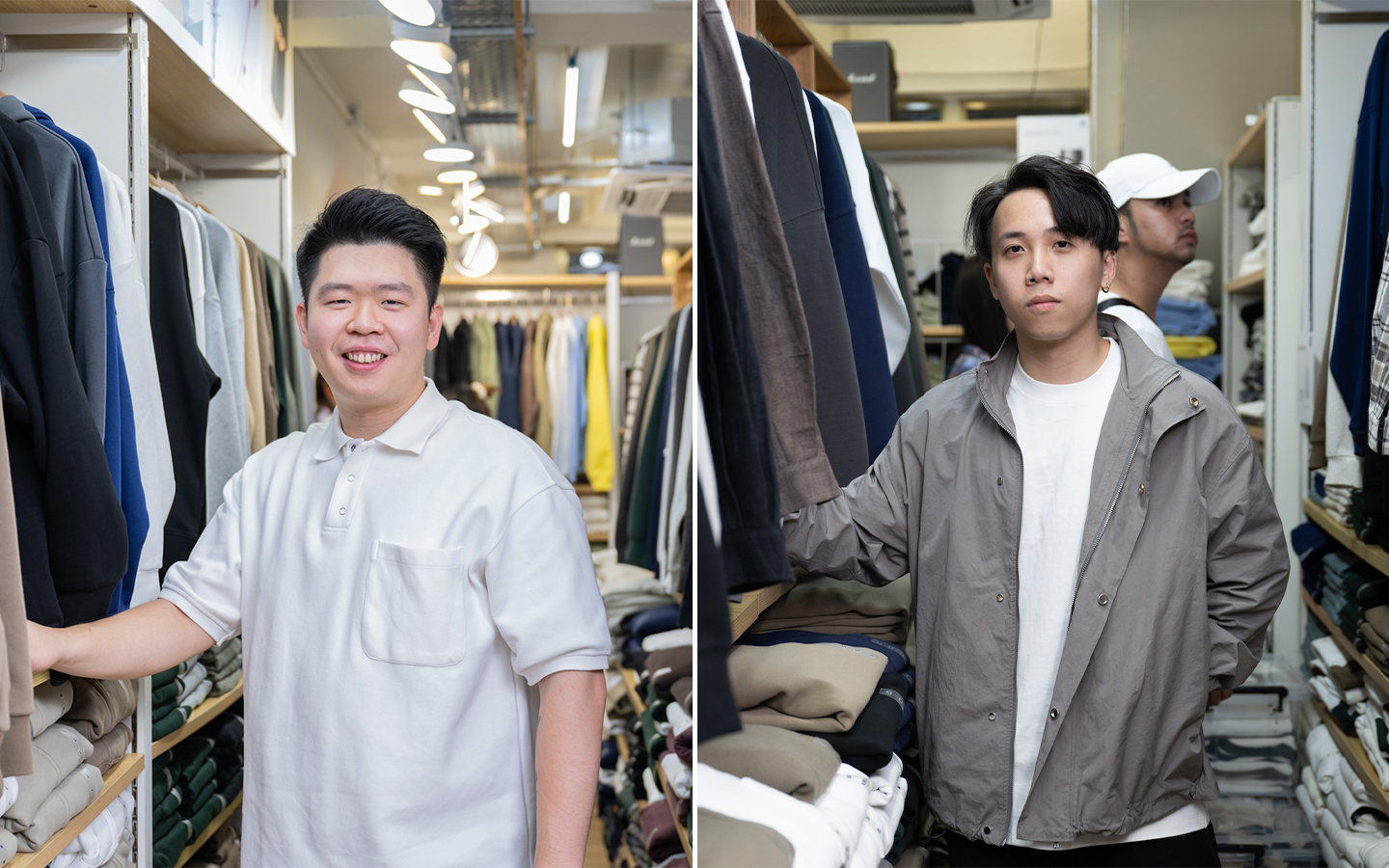
In April 2021, the entrepreneurs opened a brick-and-mortar Pure Zone shop in the Barra area. Entering the boutique, the brand’s focus on quality is apparent.
In addition to a loyal following in Macao, Pure Zone has seen growing demand from the mainland after partnering with Chinese influencers on Little Red Book (Xiaohongshu) – one of the most influential social media platforms driving Gen Z trends.
While Tam and Wong keep close tabs on emerging trends, they don’t feel the need to jump on every fleeting fashion moment. “Our oversized jackets, pants and faded washed tees can complement trends [such as Y2K], but that’s not our brand’s style,” says Tam, adding that he’s more concerned about making minimalist pieces that stand the test of time.
Atelier Estorninho
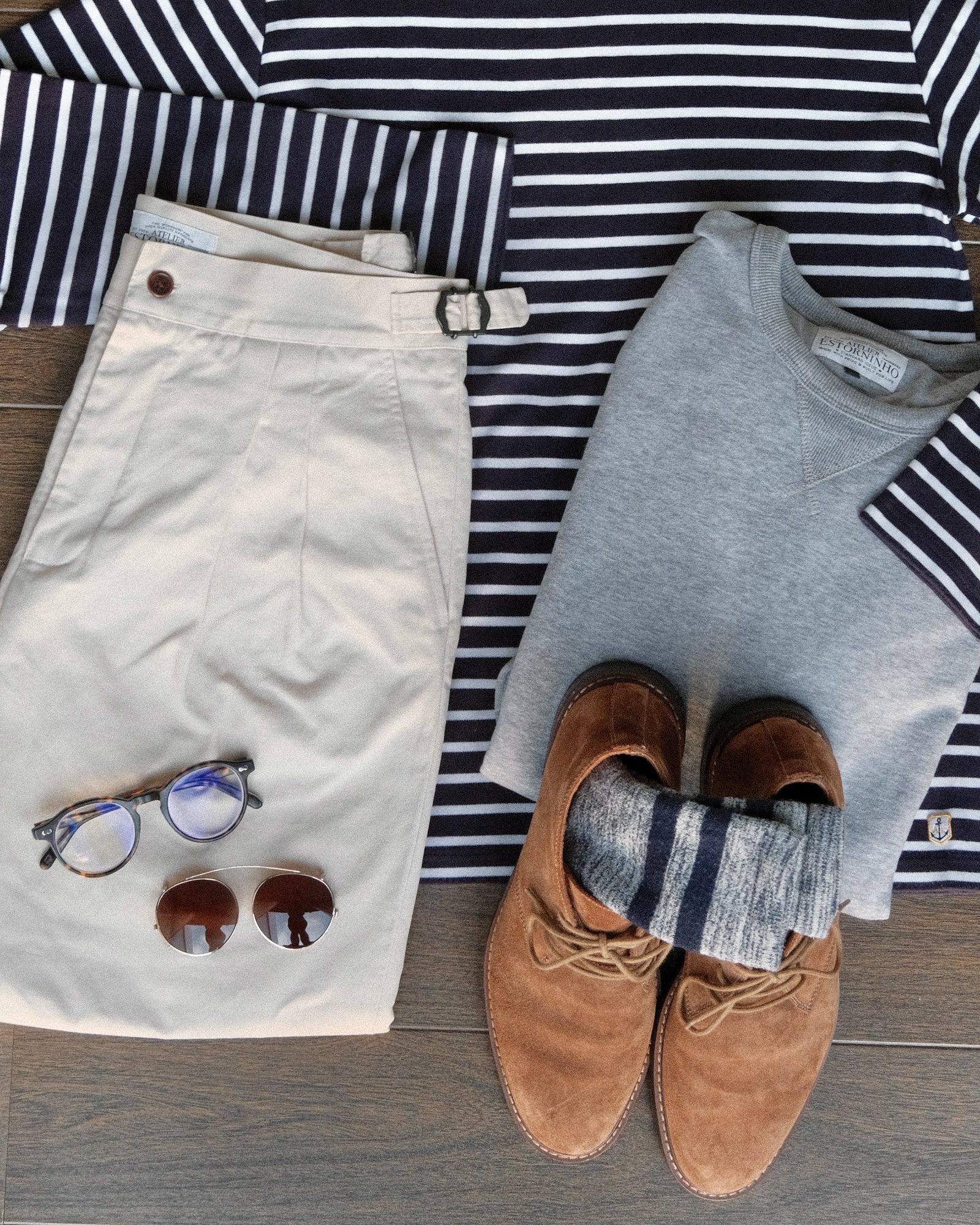
Macao-born and raised Hugo Estorninho founded his eponymous clothing label in 2022, after studying global design at IADE (Faculty of Design, Technology and Communication) in Lisbon, Portugal. A penchant for slow fashion inspired the 26-year-old to celebrate mid-1900s textile craftsmanship in his pieces, which can be difficult for modern machinery to emulate.
“The idea was not just about designing clothes but also leveraging the textile industry in Portugal, namely in northern Portugal, which is very advanced,” says Estorninho, who currently lives in Lisbon. “I sought out the best artisans from the top workshops to materialise my vision to revive pieces lost in time.” Atelier Estorninho is an online shop specialised in a vintage-inspired look incorporating James Dean-esque chinos and Ivy League-style cardigans. Its clean-cut uniform aesthetics are only available through an online boutique.
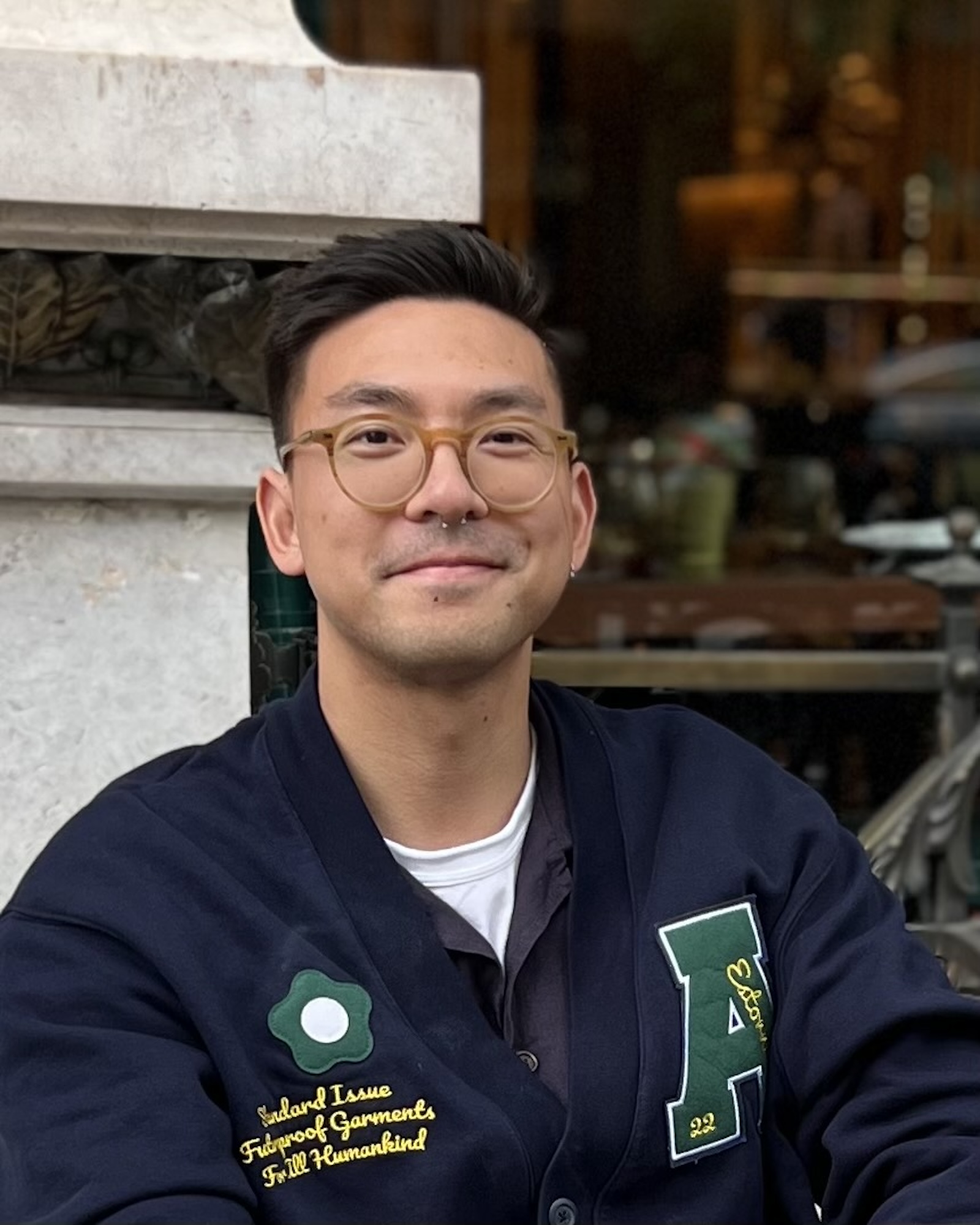
Sustainability is of great importance to Estorninho, who strives to be the antithesis of fast fashion. The designer sources GOTS-certified cotton from Spain, uses corozo fruit shells for buttons, and does not offer sales because – he believes – they can promote overconsumption.
He also takes pride in the fact his creation process is very, very slow. Every detail in Estorninho’s clothing has been carefully considered and painstakingly assembled, typically taking months to move from concept to conception. He points to his chinos as an example: “These trousers are not something you throw away, but something you pass on,” he says. “They’re made to last.”
Estorninho’s philosophy resonates with Macao’s Gen Zs on many levels. This is a generation who want to look good, acknowledge the past, and build a better future – through fashion.
